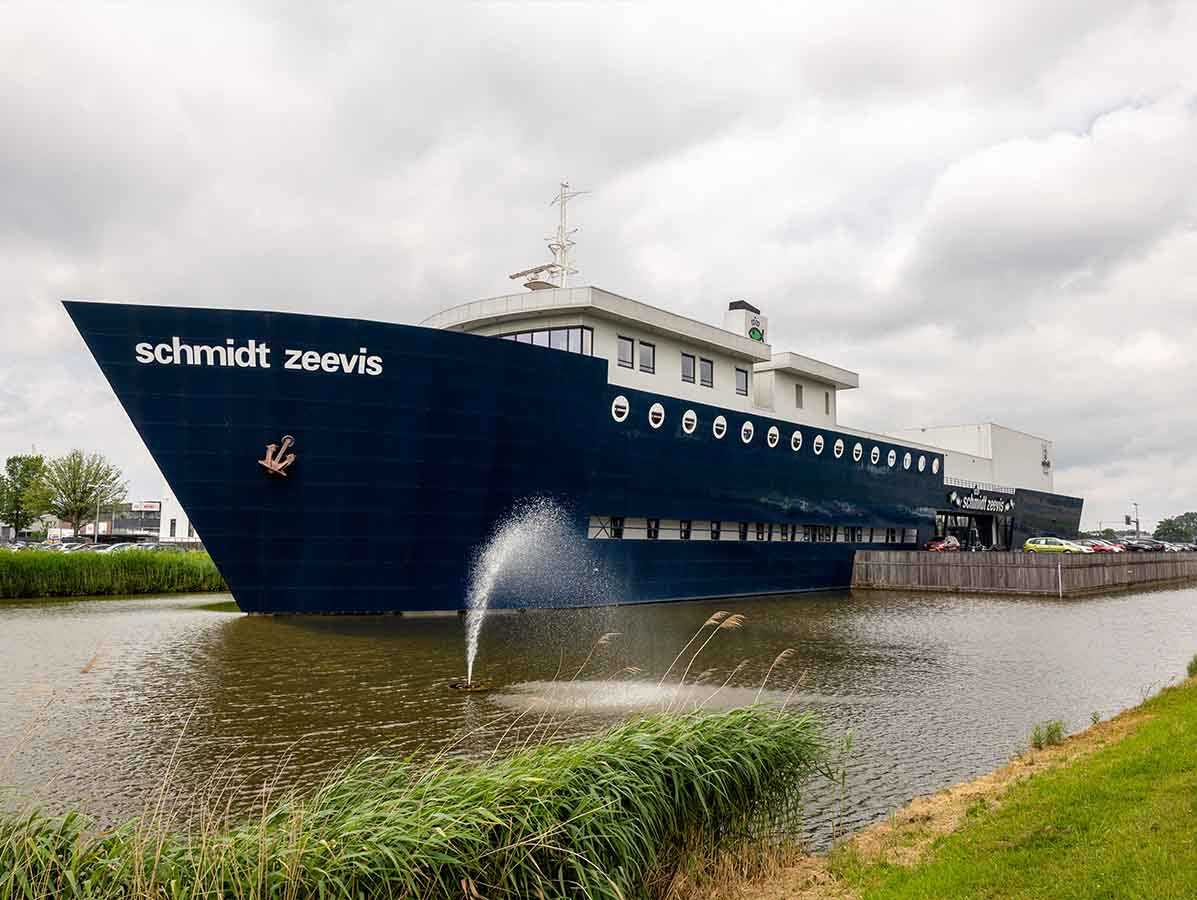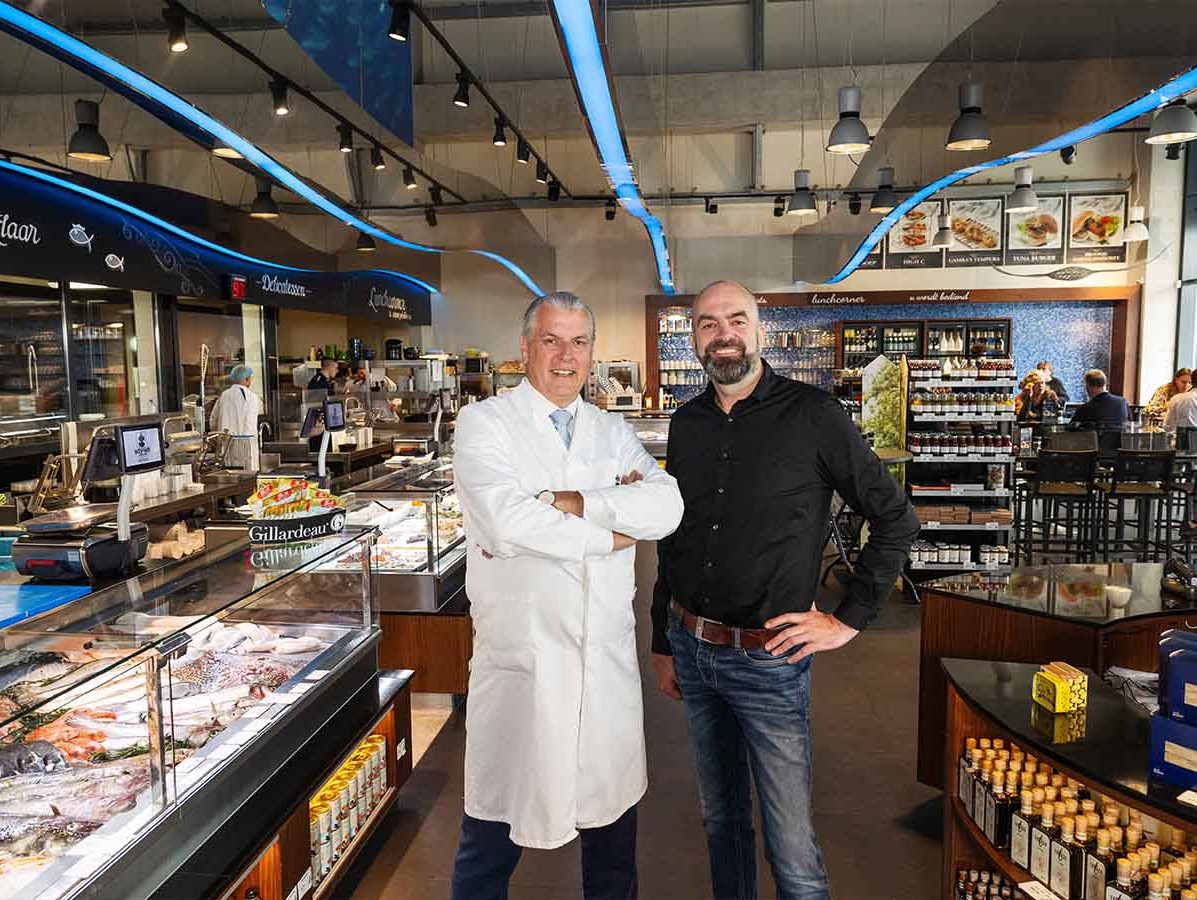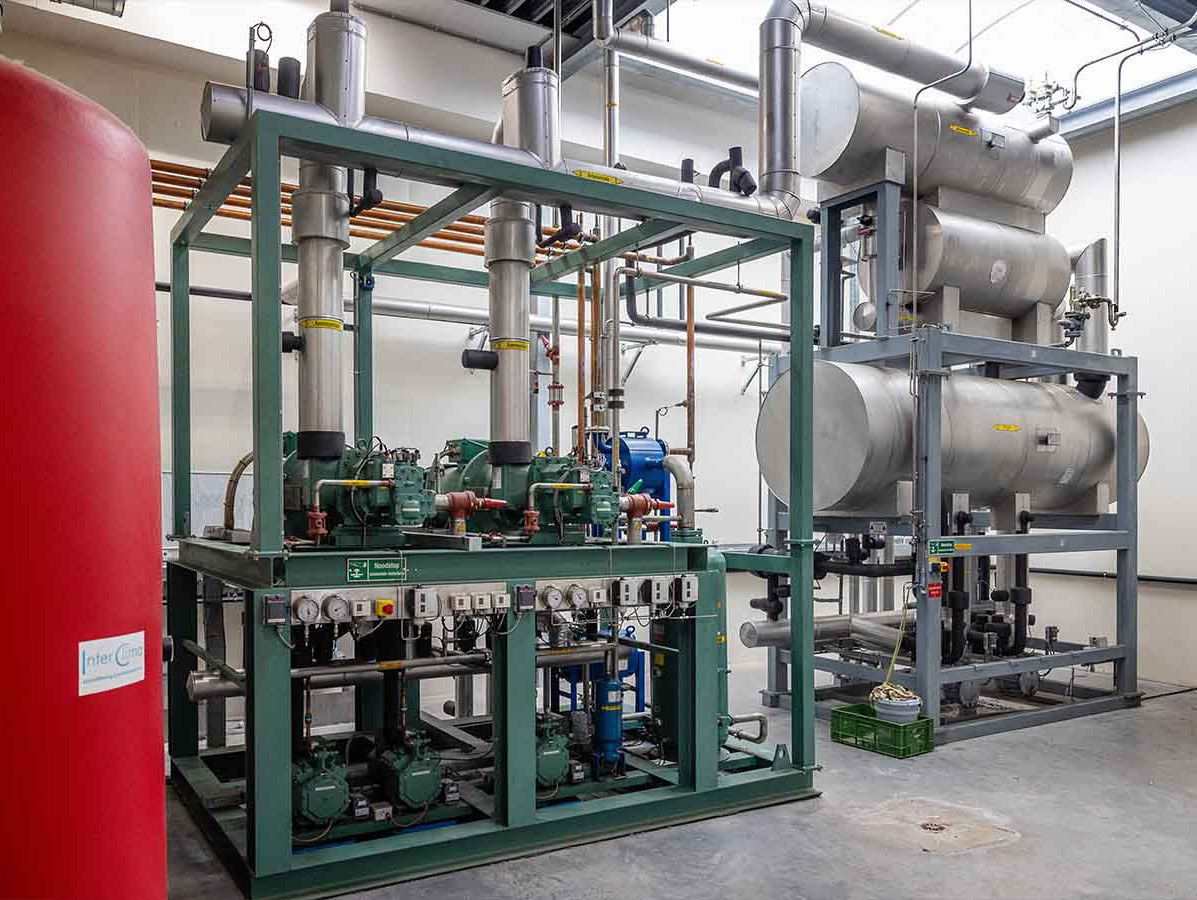
The fish shop that grandma Schmidt started over 100 years ago has grown into a multimillion-dollar company with well-known hospitality clients, an extensive product range, and a large factory with significant energy consumption. To reduce energy costs, a new control system for the refrigeration units was installed.
Whole monkfish, fresh langoustines, and seafood platters are just a few examples of the impressive range of fish and shellfish products on display at Koninklijke Schmidt Zeevis. With 400 square meters and a selection of over 3,000 different fish products, this store is unquestionably in a class of its own among fish shops. Besides retail customers, the company also serves mid- to high-end hospitality businesses, large cruise ships worldwide, and ship stores (where shipping companies do their shopping).
More than a hundred years ago, around 1916, Schmidt Zeevischhandel opened its doors on Rotterdam's Scheepstimmermanslaan. "Grandma Schmidt was the company's founder, while grandpa Schmidt worked for the mounted police at the time. Under her leadership, the business quickly expanded beyond a fish shop, forming partnerships with local restaurants," said co-director Jos van Vuren. Until 2000, the company was family-owned, after which the shares were sold to the Kennemervis Group. Since 2012, Marcel van Breda and Jos van Vuren have been the proud owners. Schmidt Zeevis now turns over tens of millions annually. Since 2015, the company has been housed in a colossal ship-shaped building in the Spanish Polder area of Rotterdam. Behind the shop is a large factory where the delivered fish is scaled, filleted, and portioned to order. "Nowadays, customers want the fish as ready-to-cook as possible. Due to staff shortages in the hospitality industry, there's no longer time or expertise in the kitchen to do that work. Times have changed; when I started here in 1989, about 75% of the fish went out unprocessed."

Jos van Vuren (left) and Rinke Kortenbach
In the factory, due to the high perishability of fish, work is done at low temperatures (between 2 and 4 °C). All fish also leaves the premises either chilled or frozen, consuming a significant amount of energy, with a corresponding hefty bill. "When the energy crisis hit, our bill increased fivefold. That was quite a shock," said Jos. This prompted Rinke Kortenbach from the RBK Group to introduce the FOPRO control program for refrigeration systems. Having been closely involved in the factory's construction, he knew both the location and Jos well. "We saw opportunities to reduce energy consumption with FOPRO. It's a smart software program that creates stability in the engine room," explained Rinke. Simply put, the system continuously balances cold generators and potential users, providing control in the factory and the engine room, unlike other systems that typically react ad hoc to cold demand. Besides lower energy consumption, this also significantly reduces maintenance. Rinke compares it to a car: "If it starts and stops frequently, the technology wears out much faster than if it runs steadily for long periods."

Jos nods. He is the kind of person who doesn't fall for quick fixes easily. "I get countless emails daily from parties promising me gold. But when Rinke suggests something, I know it's worth a closer look." Last May, the old control system was replaced with the FOPRO software program. "This allows us to make a very concrete comparison between the before and after. The energy consumption of the refrigeration system has dropped by 15 to 20%, and the factory's overall consumption is about 10% lower than before. With the energy bills they receive, these are significant savings," says Rinke while showing the FOPRO app on his phone. Both RBK and Jos and his colleagues can monitor the refrigeration system's consumption in real time. Rinke: "Jos doesn't have time for that, of course, but we keep a close eye on it. If we notice anything unusual, we immediately ask the refrigeration technicians for a check."
Schmidt Zeevis not only makes forward-looking choices regarding hardware and software. Jos: "We are a certified training company and are happy to involve the new generation in our business. We regularly have six or seven interns around. This requires a lot from us too—I even hired someone specifically to guide them. But we find it important to excite young people about our wonderful profession. Nowadays, good employees are just as valuable as good customers."
www.schmidtzeevis.nl
www.rbk.nl
Photos: ©Herbert Wiggerman
Source: Vakblad Voedingsindustrie 2024